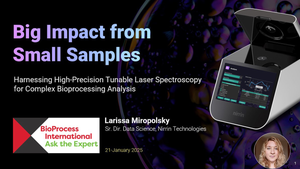
Biogen and Samsung Bioepis’ Imraldi has exceeded 200,000 doses in its first full quarter since launch and, in one example, has captured 14% of the German market.
Approved in August 2017, Imraldi launched in the European Union in October 2018. Imraldi is one of several biosimilars of AbbVie’s best-selling monoclonal antibody Humira (adalimumab) competing in the region. Others include Amgen’s Amgevita and Sandoz’s Hyrimoz, both also launched in Q4 2018 following the expiration of AbbVie patents.
In the first full quarter since launch, Biogen’s CFO Jeff Capello said “the rate of Humira biosimilar adoption has been steeper than for the previous two anti-TNFs [infliximab and etanercept biosimilars] and our data indicate that ImraldI is the market-leading Humira biosimilar in Europe.”

Image: iStock/NicoElNino
Imraldi pulled in $36 million in sales, but made significant inroads into specific markets, he claimed.
For example, “in Germany, the largest anti-TNF market in Europe, we estimate that Humira biosimilars have already captured approximately 35% market share with Imraldi capturing about 40% of that share.” Doing the math, this implies Imraldi has a 14% share of the adalimumab market in the country.
Biogen, through its partnership with Korea’s Samsung Bioepis (of which it owns close to a 50% share of), has another two biosimilars commercially launched: Benepali, a version of Amgen’s Enbrel (etanercept), and Flixabi, a version of J&J’s Remicade (infliximab).
Combined, the three biosimilars pulled in $175 million for the quarter, compared to $128 million in the first quarter of 2018 – an increase of 37%.
US market
The firm is yet to launch a biosimilar in the US (Samsung Bioepis’ infliximab is marketed in the US by Merck & Co, under the name Renflexis), a market that only saw the introduction of biosimilars in 2015 and has been slow on the uptake.
But CEO Michel Vounatsos said on the call the firm believes in the value creation opportunity offered by the biosimilars in the US.
“The savings opportunity [is] up to $250 billion in the next 10 years if we had an effective biosimilars market in the US, and we don’t speak about that enough,” he said. “We’ll address this potential gap. We are very pleased with our portfolio, we are very pleased with our performance. We do not intend to stop here.”
About the Author
You May Also Like

schedl_b_and_w.jpg?width=100&auto=webp&quality=80&disable=upscale)
schedl_b_and_w.jpg?width=400&auto=webp&quality=80&disable=upscale)





